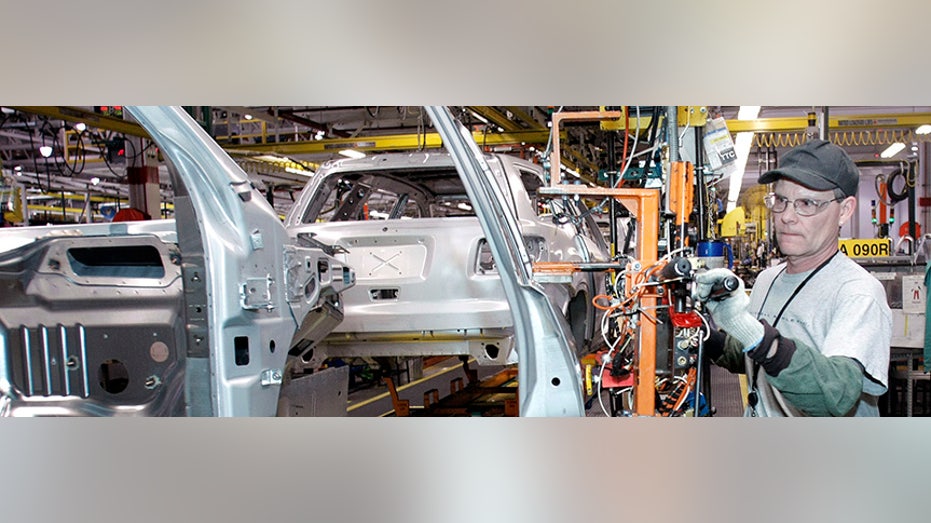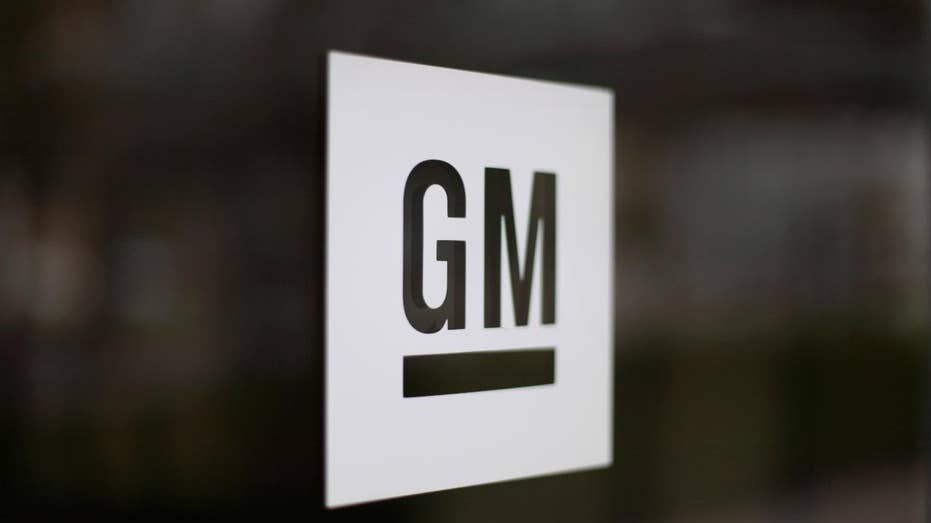GM contract with UAW lapsing without a strike, for now
United Auto Workers members employed by General Motors said Saturday they would stay on the job even after the expiration of their contract at midnight, without committing to a specific period of time.
The auto workers decided to let the agreement lapse without an interim deal in place after contentious negotiations in which GM has sought to trim labor costs while the union fights for improvements on its most recent contract.
"While we are fighting for better wages, affordable quality healthcare and job security, GM refuses to put hard-working Americans ahead of their record profits of $35 billion in North America over the last three years," Terry Dittes, the union's vice president, wrote in a letterr on Saturday. "We are united in our efforts to get an agreement our members and their families deserve."
UAW leaders are scheduled to meet Sunday morning and haven't ruled out a labor action.
“Nobody wins with a strike,” auto analyst and founder of RebeccaDrives.com Rebecca Lindland told Yahoo Finance. “GM is saying, 'We’re facing competitive pressures.' They have actually found a lot of jobs for workers in those plants that are scheduled to close, so they feel like they’ve done a lot for the union and the union is saying, 'But we want more.'”
Any agreement between GM and the UAW will set the tone for contract negotiations with the rest of Detroit's Big Three manufacturers, Ford and Fiat Chrysler, she added.
Much has changed since the last round of bargaining between the UAW and GM in 2015, with the auto industry among the hardest hit by the Trump administration's trade war with China and the emergence of new industry competitors from Tesla to Rivian and Waymo.
Perhaps the biggest obstacle is GM's idling of four factories in Michigan, Maryland, and Ohio, which the union has vowed to fight at all costs. Members of the labor organization also want a boost in pay that starts at $17 to $30 an hour under the existing contract.

General Motors employees build a crossover SUV at the GM Lansing Delta Township Assembly Plant in Michigan in March 2010. (Photo by Bill Pugliano/Getty Images)
UAW members want to retain their plum health-care coverage, which requires members to pay only 3 percent of their out-of-pocket costs. In comparison, the average member of the U.S. workforce pays 28 percent, and salaried, non-UAW-represented auto workers pay 20 percent to 30 percent, according to the Henry J. Kaiser Family Foundation.
“Healthcare stands alone as not only the most costly benefit on a per-hour basis but also the benefit that has the most substantial year-over-year cost increases,” Kristin Dziczek, a vice president at the Center for Automotive Research, wrote on the organization’s website Monday.
GM and fellow automakers are pushing to bring benefits and salary for union members closer to those of non-members.
On average, GM pays its factory workers $63 an hour, the highest of the Big Three automakers. Ford pays $61 an hour and Fiat Chrysler offers $55. Nonunion workers in the U.S. factories of foreign automakers earn an average $50 an hour.
“In an era of solidly profitable operations, the automakers are seeking to contain labor cost growth while the UAW is looking to make economic gains and secure its members’ jobs and future income,” Dziczek added.
With such disparate demands, the specter of a strike looms large.

In fact, the UAW is already contemplating directing GM janitorial workers to walk off the job this weekend, as the union’s contract with their employer, Aramark, is set to expire at the same time as the agreement with GM.
Slowing U.S. vehicle sales and a federal investigation into a multimillion-dollar bribery scheme involving the UAW’s top executives, including president Gary Jones, have roiled this year's talks even further.
“That’s putting additional pressure for a strike so that the members say, 'Who are you really negotiating for,'” Lindland said. “That scandal is actually putting more pressure for better representation, and for the union members, better representation means going on strike and getting a better contract.”
The UAW has also made job expansion a priority, with the union’s goal of increasing its membership proving a particular point of contention with GM brass.
While Fiat Chrysler and Ford have considerably increased the number of union-represented workers on their payrolls in recent years, GM has not followed suit, opting to reduce passenger-car production stateside and increase it in Mexico. GM’s increasing use of temp workers, who receive far fewer benefits and lower wages, is also disrupting talks.
Should contract talks continue to stagnate, a walkout may be inevitable. The labor action would likely be short-term, though, and wouldn't affect potential car buyers.
“Right now we have a good amount of inventory at dealer lots, so consumers shouldn’t really feel any impact,” Lindland said. “Where we’ll start to feel impact is if it keeps going, and suddenly we aren’t shipping vehicles to dealer lots.”
CLICK HERE TO READ MORE ON FOX BUSINESS




















